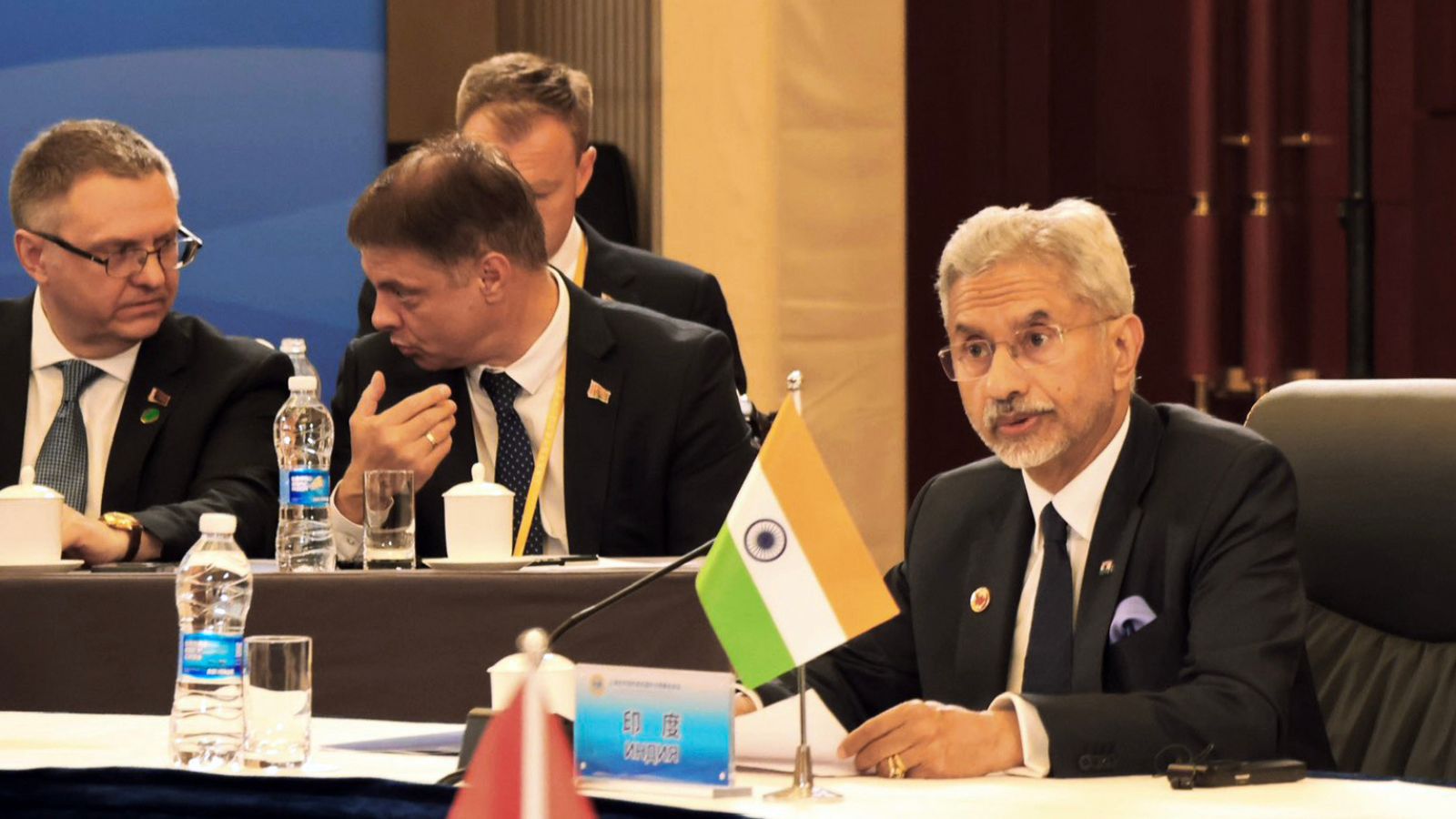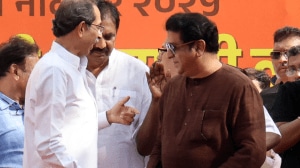In his first visit to China since the start of the military standoff between Chinese and Indian troops along the Line of Actual Control in eastern Ladakh in 2020, External Affairs Minister S Jaishankar met President Xi Jinping in Beijing Tuesday and apprised him of the “recent development” in bilateral ties — the two countries have begun taking steps to repair relations.
In a post on X after meeting Xi, Jaishankar, who is attending a gathering of Foreign Ministers of the Shanghai Cooperation Organisation in Tianjin, said, “Called on President Xi Jinping this morning in Beijing along with my fellow SCO Foreign Ministers. Conveyed the greetings of President Droupadi Murmu & Prime Minister Narendra Modi. Apprised President Xi of the recent development of our bilateral ties. Value the guidance of our leaders in that regard.”

Speaking at the meeting of the Foreign Ministers, Jaishankar said the SCO was founded to combat the “three evils” of “terrorism, separatism and extremism”, and it was imperative for the SCO to take an “uncompromising position on this challenge”.
“The three evils that SCO was founded to combat were terrorism, separatism and extremism. Not surprisingly, they often occur together. Recently, we in India witnessed a graphic example in the terrorist attack in Pahalgam on 22 April 2025. It was deliberately conducted to undermine the tourism economy of Jammu and Kashmir, while sowing a religious divide. The UN Security Council, of which some of us are currently members, issued a statement that condemned it in the strongest terms and ‘underlined the need to hold perpetrators, organizers, financiers and sponsors of this reprehensible act of terrorism accountable and bring them to justice’. We have since done exactly that and will continue doing so. It is imperative that the SCO, to remain true to its founding objectives, take an uncompromising position on this challenge,” he said, referring to Operation Sindoor.
“We meet at a time of considerable disorder in the international system. In the last few years, we have seen more conflicts, competition and coercion. Economic instability is also visibly on the rise. The challenge before us is to stabilize the global order, de-risk various dimensions and through it all, address longstanding challenges that threaten our collective interests,” he said.
India, he said, has taken several initiatives in the SCO in domains ranging from startup and innovation to traditional medicine and digital public infrastructure. “We will continue to positively approach new ideas and proposals that are genuinely for our collective good. It is essential that such cooperation is based on mutual respect, sovereign equality and in accordance with territorial integrity and sovereignty of member states,” he said, in an oblique reference to China.
“Deepening collaboration within the SCO naturally requires more trade, investment and exchanges. For that to move to the next level, it is imperative that we address some current issues. One of them is the lack of assured transit within the SCO space. Its absence undermines the seriousness of advocating cooperation in economic areas. Another is to ensure the promotion of the International North South Transport Corridor (INSTC). We are confident that it will continue to gather momentum,” he said.
Story continues below this ad
While Pakistan doesn’t grant overland transit to India, Delhi has been working with Iran on the INSTC to access Central Asia.
“Afghanistan has been long on the SCO agenda. The compulsions of regional stability are buttressed by our longstanding concern for the well-being of the Afghan people. The international community, particularly SCO members, must therefore step up with development assistance. India, for its part, will certainly do so,” Jaishankar said.
“The world is today moving towards greater multi-polarity. This is not just in terms of redistribution of national capacities, but also the emergence of effective groupings like SCO. Our ability to contribute to the shaping of world affairs will naturally depend on how well we come together on a shared agenda. That means taking everybody on board,” he said.
A Xinhua report said President Xi met Foreign Ministers and heads of standing bodies of the SCO.
Story continues below this ad
“He noted that over the past 24 years since its founding, the SCO has always upheld the Shanghai Spirit, grown into a mature and robust organization, and demonstrated strong vitality,” it said.
“China has always prioritized the SCO in its neighborhood diplomacy, and is committed to making the organization more substantive and stronger, safeguarding regional security and stability, promoting the development and prosperity of member states and building a closer community with a shared future,” Xi said, according to the Xinhua report.
He said ever since China assumed the rotating presidency last July, it has actively carried out activities and advanced cooperation, with all parties taking solid steps to jointly build a better home for the SCO.
With the SCO Summit set to take place this year in Tianjin, Xi “expressed his hope to meet the leaders of other member states at the event to discuss the future development of the SCO”, it said.
Story continues below this ad
Prime Minister Narendra Modi is expected to travel to China for the SCO Leaders’ Summit in early September this year.
ExplainedMoving to repair ties
IN THE months after the disengagement of troops in eastern Ladakh, India and China have sought to repair ties. The resumption of the Mansarovar Yatra and discussions to restore direct flights are pointers to the efforts.
“He (Xi) stressed that in the face of a turbulent and changing international landscape, the SCO must stay focused, remain confident, act efficiently and play a more proactive role in injecting greater stability and positive energy into the world,” Xinhua reported.
A day earlier, on Monday, Jaishankar told Chinese Foreign Minister Wang Yi that while India and China have made good progress in the past nine months towards the normalisation of bilateral relations, they should work to address de-escalation on the border.
He also underlined that “differences should not become disputes” nor should “competition ever become conflict”.
Story continues below this ad
On October 23, 2024, Modi and Xi met on the sidelines of the BRICS Summit in Kazan, Russia, two days after a border patrolling arrangement was announced on October 21. Since then, National Security Advisor Ajit Doval has travelled to China twice; Defence Minister Rajnath Singh and Foreign Secretary Vikram Misri have also gone there for meetings.
On Tuesday, Jaishankar also met Iranian Foreign Minister Seyed Abbas Araghchi on the sidelines of the SCO meeting.









